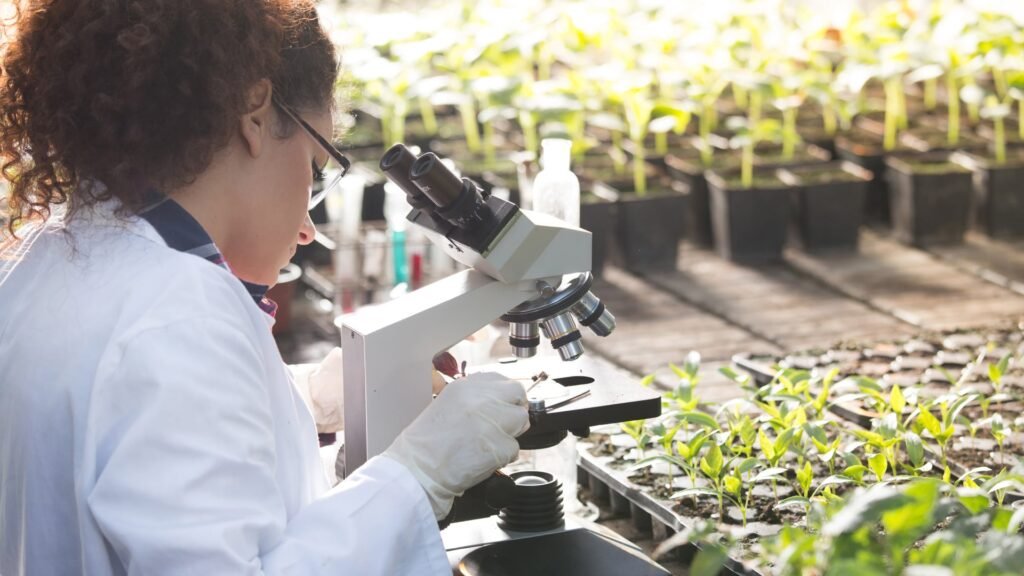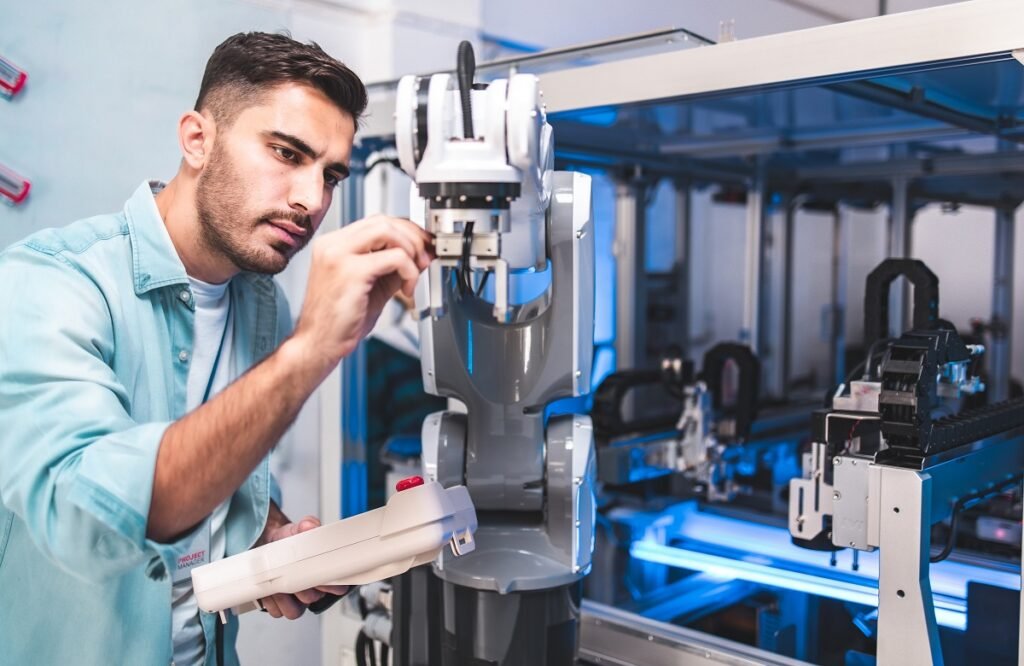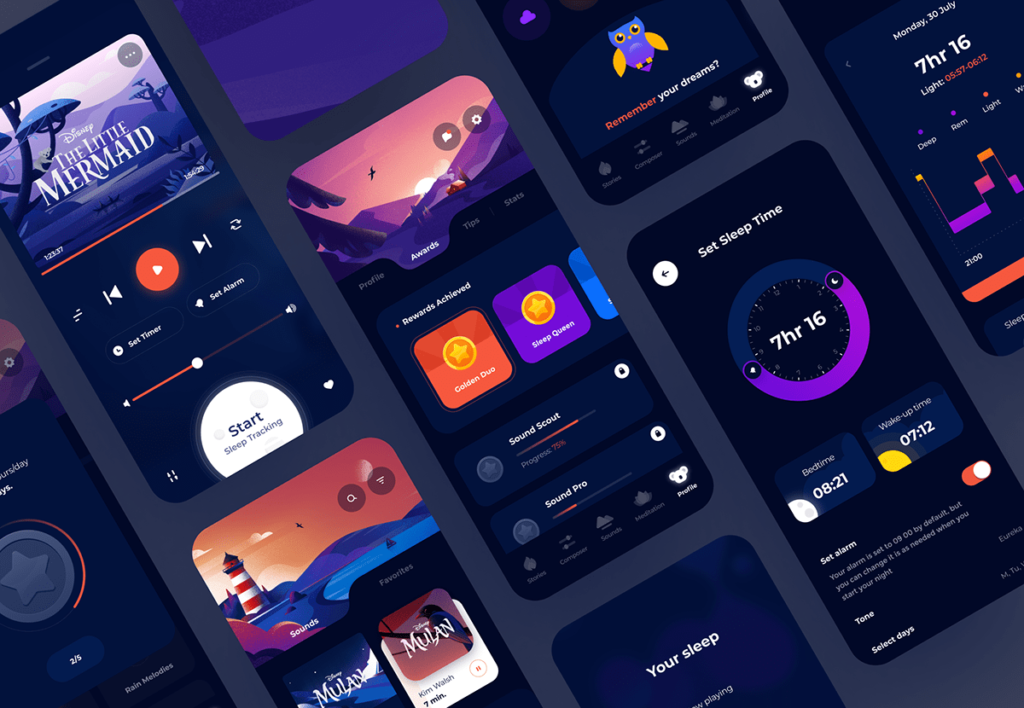As we progress into 2025, the list of careers in science and technology reflects the rapid advancements in these fields and the increasing demand for skilled professionals. Understanding this list of careers in science and technology is crucial for students and job seekers aiming to align their skills with market needs. This article will delve deeply into the top ten in-demand careers in science and technology, highlighting their responsibilities, salary expectations, and essential skills required for success
To Know more click here
1. Data Scientist
Overview
Data scientists are critical in transforming data into actionable insights. This role combines skills in statistics, programming, and domain knowledge to analyze large datasets and drive decision-making in organizations. Data scientists can be found in various sectors, making this role a prominent entry on any list of careers in science and technology.
Key Responsibilities
- Data Collection and Cleaning: Gather data from multiple sources and preprocess it for analysis by addressing inconsistencies and missing values.
- Data Analysis: Utilize statistical methods to interpret complex data sets, identify trends, and make predictions.
- Model Development: Build machine learning models that automate predictions and enhance decision-making.
- Data Visualization: Create dashboards and visual representations of findings to communicate insights effectively.
- Collaboration: Work with cross-functional teams to understand business needs and provide data-driven recommendations.
Salary Expectations
In 2025, the average salary for data scientists is projected to be between $110,000 and $150,000. Factors influencing this range include experience, education, location, and industry.
Skills Required
- Programming Languages: Proficiency in languages such as Python and R is essential for data manipulation and analysis.
- Statistical Analysis: Strong knowledge of statistical methods and tools (e.g., regression, hypothesis testing).
- Machine Learning: Familiarity with machine learning algorithms and libraries (e.g., Scikit-learn, TensorFlow).
- Data Visualization Tools: Experience with tools like Tableau or Power BI.
- Critical Thinking: Ability to analyze complex problems and derive actionable insights.

2. Artificial Intelligence (AI) Engineer
Overview
AI engineers develop intelligent systems that mimic human cognition. They work on applications including natural language processing, computer vision, and robotics. As AI continues to shape industries, this role has become increasingly prominent on the list of careers in science and technology.
Key Responsibilities
- Algorithm Development: Design and implement algorithms that enable machines to learn from data.
- Model Training and Optimization: Train AI models on large datasets and fine-tune parameters to improve performance.
- System Integration: Integrate AI solutions into existing systems and applications to enhance functionality.
- Research and Development: Stay updated on the latest AI trends and technologies, contributing to innovative projects.
- Collaboration: Work alongside data scientists and software developers to build comprehensive AI systems.
Salary Expectations
AI engineers can expect salaries ranging from $120,000 to $160,000 in 2025, depending on their expertise and the complexity of the projects they manage.
Skills Required
- Programming Skills: Strong proficiency in languages such as Python, Java, and C++.
- Machine Learning Frameworks: Experience with frameworks like TensorFlow and PyTorch.
- Deep Learning: Understanding of neural networks and their applications.
- Data Structures and Algorithms: Solid grasp of algorithms and data structures to optimize performance.
- Problem-Solving Skills: Ability to tackle complex problems with innovative solutions.

3. Cybersecurity Analyst
Overview
Cybersecurity analysts play a vital role in safeguarding an organization’s data and IT infrastructure. With the increasing frequency of cyber threats, their expertise is crucial for maintaining security and compliance, making this role a key entry on the list of careers in science and technology.
Key Responsibilities
- Threat Monitoring: Continuously monitor networks for potential security breaches and vulnerabilities.
- Incident Response: Develop and implement response plans for security incidents, including containment and remediation strategies.
- Security Audits: Conduct regular security audits and vulnerability assessments to identify and mitigate risks.
- Policy Development: Create and enforce security policies and procedures to protect organizational assets.
- Training and Awareness: Educate employees on cybersecurity best practices and conduct awareness programs.
Salary Expectations
The salary for cybersecurity analysts is expected to range from $90,000 to $130,000 in 2025, influenced by experience, certifications, and industry specialization.
Skills Required
- Security Tools: Familiarity with tools such as firewalls and intrusion detection systems.
- Networking Knowledge: Understanding of networking protocols and security architectures.
- Analytical Skills: Strong ability to analyze security incidents and develop effective countermeasures.
- Regulatory Knowledge: Awareness of compliance regulations and standards (e.g., GDPR, HIPAA).
- Certifications: Certifications such as CISSP or CompTIA Security+ can enhance job prospects.

4. Biomedical Engineer
Overview
Biomedical engineers apply engineering principles to the medical and biological sciences, developing technologies that improve healthcare outcomes. Their work often involves designing medical devices, making them a crucial part of the list of careers in science and technology.
Key Responsibilities
- Device Development: Design and test medical devices such as prosthetics and diagnostic tools.
- Research and Innovation: Conduct research to develop new technologies and improve existing medical devices.
- Clinical Collaboration: Work closely with healthcare professionals to understand clinical needs and develop appropriate solutions.
- Regulatory Compliance: Ensure that all products meet safety and regulatory standards set by organizations such as the FDA.
- Project Management: Oversee projects from conception to completion, ensuring timely delivery and adherence to specifications.
Salary Expectations
Biomedical engineers can expect to earn between $85,000 and $120,000 in 2025, depending on their specialization and industry.
Skills Required
- Engineering Principles: Strong foundation in mechanical, electrical, and materials engineering.
- CAD Software: Proficiency in computer-aided design (CAD) software for modeling and prototyping.
- Biological Sciences: Understanding of biological systems and medical terminology.
- Problem-Solving Skills: Ability to develop innovative solutions to complex engineering problems.
- Communication Skills: Strong verbal and written communication skills for collaboration with medical teams.

5. Software Developer
Overview
Software developers create applications and systems that meet user needs. They work in various environments, from tech startups to large corporations, making their role a cornerstone of the list of careers in science and technology.
Key Responsibilities
- Application Development: Design, code, and test new software applications according to user requirements.
- System Maintenance: Maintain and improve existing software systems, debugging and troubleshooting issues.
- Collaboration: Work with cross-functional teams to deliver high-quality software products.
- Documentation: Write technical documentation to support software development and user training.
- Version Control: Utilize version control systems (e.g., Git) to manage code changes effectively.
Salary Expectations
In 2025, software developers can expect salaries between $90,000 and $130,000, influenced by experience, location, and technology stack.
Skills Required
- Programming Languages: Proficiency in languages such as Java, C#, JavaScript, and Python.
- Development Frameworks: Familiarity with frameworks like React, Angular, or Django.
- Software Development Methodologies: Experience with Agile and DevOps practices.
- Database Management: Understanding of database management systems (e.g., SQL, MongoDB).
- Problem-Solving Skills: Strong analytical and problem-solving abilities.

6. Environmental Scientist
Overview
Environmental scientists study the environment and develop solutions to environmental problems, such as pollution and resource depletion. Their work is crucial for promoting sustainability and protecting natural resources, making them a significant entry on the list of careers in science and technology.
Key Responsibilities
- Research and Data Collection: Conduct field studies, collect samples, and analyze environmental data to assess issues such as air and water quality.
- Environmental Impact Assessment: Evaluate the potential environmental impact of proposed projects and develop mitigation strategies.
- Policy Development: Work with governmental and non-governmental organizations to develop policies aimed at environmental protection.
- Public Education: Raise awareness about environmental issues and promote sustainable practices among communities.
- Collaboration: Work alongside engineers, urban planners, and policy-makers to address complex environmental challenges.
Salary Expectations
Environmental scientists typically earn between $75,000 and $110,000 in 2025, depending on their level of education and experience.
Skills Required
- Analytical Skills: Strong ability to analyze data and draw meaningful conclusions.
- Research Methods: Familiarity with environmental research methods and laboratory techniques.
- Regulatory Knowledge: Understanding of environmental regulations and compliance requirements.
- Communication Skills: Ability to communicate complex information to non-specialist audiences.
- Project Management: Skills in managing projects and collaborating with diverse teams.

7. Robotics Engineer
Overview
Robotics engineers design and build robots that perform tasks in various industries, including manufacturing, healthcare, and logistics. Their innovative workplaces them prominently on the list of careers in science and technology.
Key Responsibilities
- Robot Design: Create detailed designs for robotic systems, considering functionality, safety, and usability.
- Programming: Develop software to control robotic systems and ensure they operate as intended.
- Testing and Evaluation: Test robots in various environments to assess performance and reliability.
- Troubleshooting: Diagnose and resolve issues that arise during the development and operation of robotic systems.
- Collaboration: Work with interdisciplinary teams to integrate robotics into existing systems and processes.
Salary Expectations
Robotics engineers can expect salaries ranging from $95,000 to $140,000 in 2025, depending on their specialization and the complexity of projects.
Skills Required
- Engineering Principles: Strong background in mechanical, electrical, and software engineering.
- Programming Languages: Proficiency in languages used for robotics, such as C++ and Python.
- Control Systems: Understanding of control systems and feedback loops.
- Simulation Software: Experience with simulation tools for robotics (e.g., ROS, Gazebo).
- Problem-Solving Skills: Ability to troubleshoot and innovate solutions to complex engineering challenges.

8. Cloud Computing Specialist
Overview
Cloud computing specialists manage cloud services and infrastructure, facilitating the transition of businesses to cloud-based solutions. This role is increasingly vital as more organizations adopt cloud technology, placing it high on the list of careers in science and technology.
Key Responsibilities
- Cloud Architecture Design: Design and implement cloud solutions that meet organizational needs.
- Security Management: Ensure data security and compliance within cloud environments.
- Performance Optimization: Monitor and optimize cloud infrastructure for performance and cost-efficiency.
- Troubleshooting: Resolve issues related to cloud services and applications promptly.
- Collaboration: Work with development and operations teams to integrate cloud solutions effectively.
Salary Expectations
Cloud computing specialists can expect salaries ranging from $100,000 to $140,000 in 2025, depending on their experience and certifications.
Skills Required
- Cloud Platforms: Proficiency in platforms such as AWS, Microsoft Azure, and Google Cloud.
- Networking Knowledge: Strong understanding of networking concepts and security practices.
- Automation Tools: Familiarity with automation and orchestration tools (e.g., Terraform, Ansible).
- Programming Skills: Experience with scripting languages (e.g., Python, Bash) for automation.
- Certifications: Relevant certifications (e.g., AWS Certified Solutions Architect) can enhance employability.

9. Genetic Counselor
Overview
Genetic counselors provide information and support to individuals and families regarding genetic conditions and risks. Their role is increasingly recognized in healthcare, placing them on the list of careers in science and technology focused on genetic health.
Key Responsibilities
- Risk Assessment: Analyze family histories and genetic data to assess the risk of genetic conditions.
- Patient Education: Educate patients about genetic testing options, results, and implications for health and family planning.
- Support and Counseling: Provide emotional support to patients navigating complex genetic information.
- Collaboration: Work with healthcare teams to integrate genetic information into patient care plans.
- Research: Stay updated on advancements in genetics and incorporate new knowledge into practice.
Salary Expectations
Genetic counselors typically earn between $75,000 and $110,000 in 2025, influenced by factors such as experience and the healthcare setting.
Skills Required
- Genetics Knowledge: Strong understanding of genetics and genomics.
- Counseling Skills: Excellent communication and interpersonal skills for effective patient interaction.
- Analytical Skills: Ability to interpret complex genetic information and convey it clearly.
- Research Skills: Familiarity with genetic research methodologies and resources.
- Ethical Understanding: Awareness of ethical issues related to genetic testing and counseling.

10. UX/UI Designer
Overview
User Experience (UX) and User Interface (UI) designers focus on creating intuitive and visually appealing digital experiences. As companies prioritize user-centric design, this role is increasingly important on the list of careers in science and technology.
Key Responsibilities
- User Research: Conduct research to understand user needs, preferences, and behaviors.
- Wireframing and Prototyping: Create wireframes, mockups, and prototypes to visualize design concepts.
- Usability Testing: Conduct usability tests to gather feedback and refine designs.
- Collaboration: Work closely with developers and product managers to ensure design feasibility and alignment with user needs.
- Design Implementation: Oversee the implementation of designs and ensure adherence to brand guidelines.
Salary Expectations
UX/UI designers typically earn between $80,000 and $120,000 in 2025, depending on their level of experience and the complexity of their work.
Skills Required
- Design Software: Proficiency in design tools such as Adobe XD, Sketch, or Figma.
- User-Centered Design: Strong understanding of user-centered design principles.
- Communication Skills: Ability to communicate design ideas effectively to various stakeholders.
- Analytical Skills: Strong analytical abilities to assess user feedback and improve designs.
- Collaboration: Experience working in cross-functional teams to deliver cohesive products.

want to know about what stream to choose?
visit our blog: How to Choose the Right Stream After 10th Grade
Conclusion
The list of careers in science and technology for 2025 is diverse and full of opportunities. As technology continues to evolve, so does the demand for skilled professionals in these fields. Understanding this list of careers in science and technology can help aspiring professionals align their education and training with market needs. Whether you are interested in data science, AI, cybersecurity, or any other area, the prospects are promising. By developing the necessary skills and staying informed about industry trends, aspiring professionals can position themselves for success in this exciting and ever-changing landscape. Embrace the chance to pursue a career in science and technology, where your contributions can make a significant impact on society and the future.







